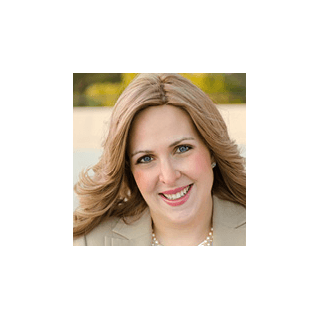Filter by
What a Probate Lawyer Can Do for You
A probate lawyer assists with the legal process of administering a deceased person’s estate. This often involves guiding executors (if a will exists) or beneficiaries (if no will exists) through the probate process to settle the estate according to the deceased’s wishes or applicable laws. Probate lawyers can help validate the will, distribute assets, resolve disputes among heirs, handle outstanding debts or taxes, and ensure the estate is legally and efficiently administered.
Whether you’re an executor of an estate or an heir facing probate proceedings, a probate lawyer can help you navigate the often-complex legal process to ensure the estate is settled correctly.
When Should I Hire a Probate Lawyer?
You should consider hiring a probate lawyer when you are responsible for managing the estate of a deceased individual, especially in the following situations:
- The estate has substantial assets: If the estate includes significant assets like real estate, investments, or business interests, legal assistance is often necessary to handle the distribution properly.
- The will is being contested: If there are disputes among heirs regarding the validity of the will or the division of assets, a probate lawyer can help resolve the conflict.
- The estate includes complex or unclear provisions: If the will contains complicated instructions or there are no clear beneficiaries, a lawyer can ensure that the estate is administered according to legal requirements.
- There is no will (intestate estate): When a person dies without a will, the estate is subject to intestacy laws, which determine how assets are distributed. A probate lawyer can help navigate this process.
- Debt or tax issues exist: If the estate owes significant debts or is subject to estate taxes, a probate lawyer can help ensure debts are paid appropriately and taxes are minimized.
- Probate disputes: If family members or other parties are disputing the distribution of assets or challenging the executor's actions, legal representation is crucial to defending your rights and ensuring the estate is handled properly.
Hiring a probate lawyer early in the process can help avoid costly mistakes and ensure the estate is settled efficiently.
What Does a Probate Lawyer Do?
A probate lawyer provides a wide range of legal services to help manage and settle an estate. Their tasks can include:
- Validating the will: Filing the will with the probate court and ensuring its legal validity.
- Guiding executors or administrators: Advising the person responsible for managing the estate on their duties, including inventorying assets, notifying creditors, and paying debts.
- Filing necessary paperwork: Preparing and submitting the legal documents required to initiate and complete the probate process.
- Resolving disputes: Mediating or litigating disputes among heirs or between beneficiaries and executors, including challenges to the will or disagreements over asset distribution.
- Handling debt and tax matters: Ensuring that outstanding debts, taxes, and estate taxes are properly calculated and paid from the estate’s assets.
- Distributing assets: Ensuring that assets are distributed to the beneficiaries according to the will or intestacy laws, and that all legal requirements are fulfilled.
- Closing the estate: Completing the final steps of the probate process, including filing a final accounting with the court and formally closing the estate.
How Are Probate Lawyers Paid?
Probate lawyers typically charge for their services based on the complexity of the estate and the nature of the legal work involved. Common payment structures include:
- Hourly rate: Most probate lawyers charge by the hour, with rates depending on the lawyer’s experience and the complexity of the estate. Hourly rates can range from $150 to $500 or more.
- Flat fee: For simple estates or straightforward probate tasks, some lawyers may charge a flat fee that covers all of the necessary legal work.
- Percentage of the estate: In some states, probate lawyers are allowed to charge a percentage of the estate's value as their fee. This percentage typically ranges from 2% to 5%, depending on the size of the estate and state regulations.
- Retainer fee: Some lawyers may require an upfront retainer fee, which is billed against as the probate process progresses.
It’s important to clarify the fee structure during your initial consultation to understand how you will be charged and avoid unexpected costs.
How Much Does a Probate Lawyer Cost?
The cost of hiring a probate lawyer depends on several factors, including the complexity of the estate, the type of legal issues involved, and the lawyer’s fee structure. General cost estimates include:
- Simple estates: For estates with straightforward assets and no disputes, probate legal fees can range from $2,500 to $10,000, depending on the lawyer's fees and the state's probate laws.
- Complex estates: For larger or more complicated estates with multiple properties, business interests, or disputes, probate costs can exceed $10,000 and may reach $20,000 or more.
- Hourly rates: If charged by the hour, expect rates between $150 and $500, depending on the lawyer’s expertise and geographic location.
- Percentage fees: In some cases, a probate lawyer may charge 2% to 5% of the estate’s value, particularly for larger estates or those involving complex legal matters.
Always ask for a clear estimate of fees during your initial consultation to understand the total cost of probate representation.
Top Questions to Ask a Probate Lawyer
Before hiring a probate lawyer, it’s essential to ask the right questions to ensure you’re hiring someone qualified to handle your estate needs. Key questions include:
-
What experience do you have with probate cases like mine?
Ensure the lawyer has experience with estates of similar complexity, especially if disputes or high-value assets are involved. -
How do you charge for your services?
Ask whether the lawyer charges an hourly rate, a flat fee, or a percentage of the estate, and request a cost estimate. -
What is the likely timeline for my probate case?
While it’s hard to predict exactly, an experienced lawyer can give you a general idea of how long the probate process may take based on the specifics of your estate. -
What steps will you take to manage and distribute the estate?
Ask about the lawyer’s approach to handling debts, taxes, and asset distribution. -
Will you be handling my case personally?
In larger firms, junior attorneys or paralegals may handle some aspects of your case, so it’s important to know who will be working on your probate case. -
What are potential challenges we may face?
A good lawyer will be able to anticipate possible issues, such as will contests or creditor claims, and explain how they would handle them.
How to Check the Credibility of a Probate Lawyer
To ensure you’re hiring a reputable probate lawyer, follow these steps to check their credentials and experience:
- Verify their state bar status: Check with your state’s bar association to confirm the lawyer is licensed to practice and has no history of disciplinary action.
- Look for probate experience: Review the lawyer’s website or professional profile to ensure they specialize in probate law and have experience handling estates of similar complexity.
- Read client reviews and testimonials: Look for online reviews on platforms like Avvo or Martindale-Hubbell to see what past clients have said about the lawyer’s probate experience.
- Ask for references: A credible lawyer should be able to provide references from past clients who can vouch for their professionalism and expertise in handling probate matters.
- Look for membership in professional organizations: Membership in organizations like the American Academy of Estate Planning Attorneys (AAEPA) or the National Academy of Elder Law Attorneys (NAELA) can indicate a lawyer's commitment to estate and probate law.
What Should I Prepare for My First Consultation?
To make the most out of your first consultation with a probate lawyer, it’s important to come prepared with relevant documents and information. Here’s what you should bring:
- A copy of the will or trust (if applicable): Bring any estate planning documents left by the deceased, including wills, trusts, or powers of attorney.
- List of assets and debts: Prepare a detailed list of the deceased’s assets (e.g., real estate, bank accounts, investments) and outstanding debts (e.g., loans, mortgages, credit cards).
- Death certificate: Bring a certified copy of the deceased person’s death certificate.
- Contact information for heirs and beneficiaries: Have a list of all individuals or entities named in the will or who are entitled to inherit under intestacy laws.
- Questions about the probate process: Write down any questions you have about the process, costs, and potential issues you might face.
- Relevant financial records: If available, bring any relevant financial documents, such as bank statements, property deeds, and tax returns.
By coming prepared, you can ensure a productive consultation and allow the lawyer to provide the best advice for your situation.









